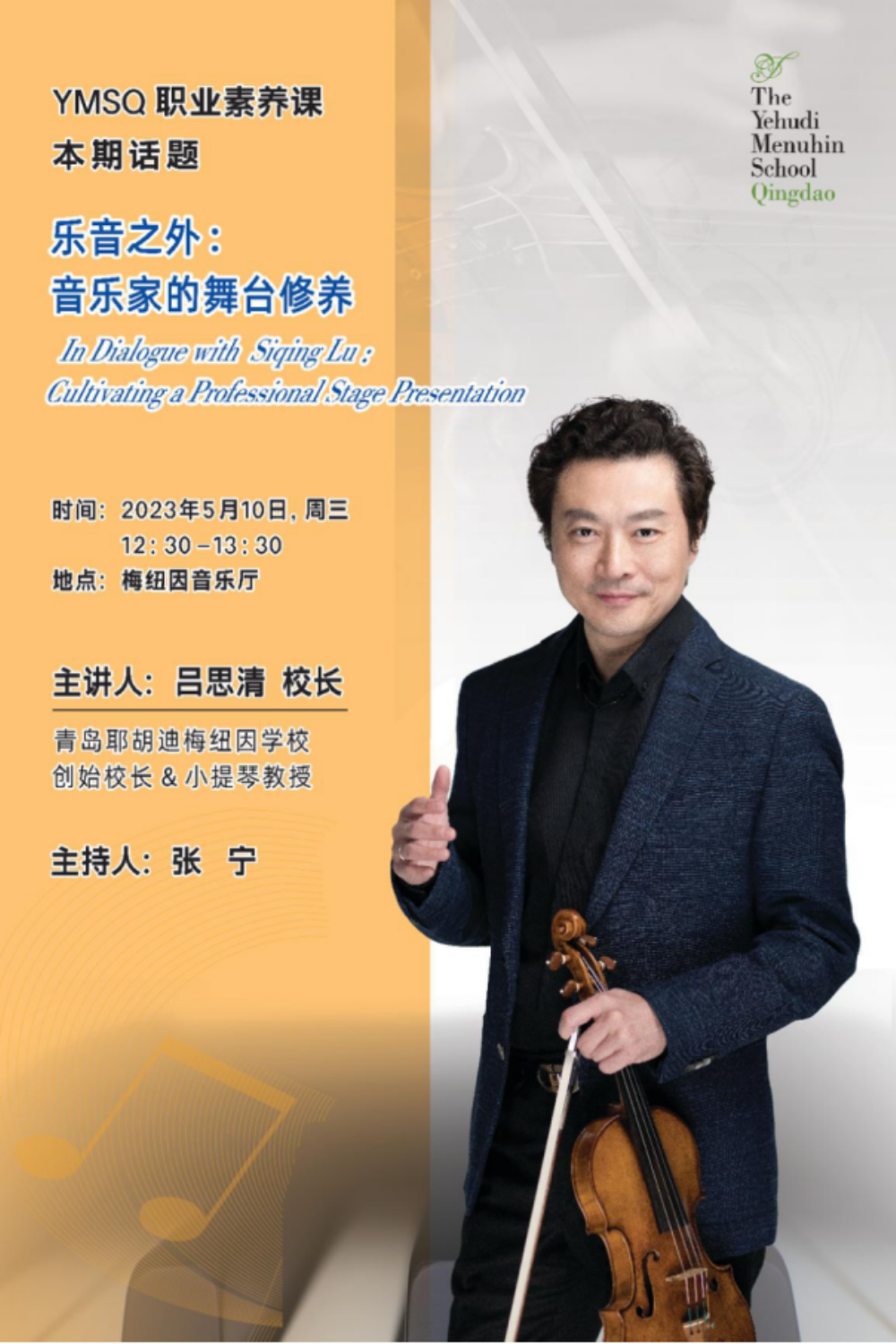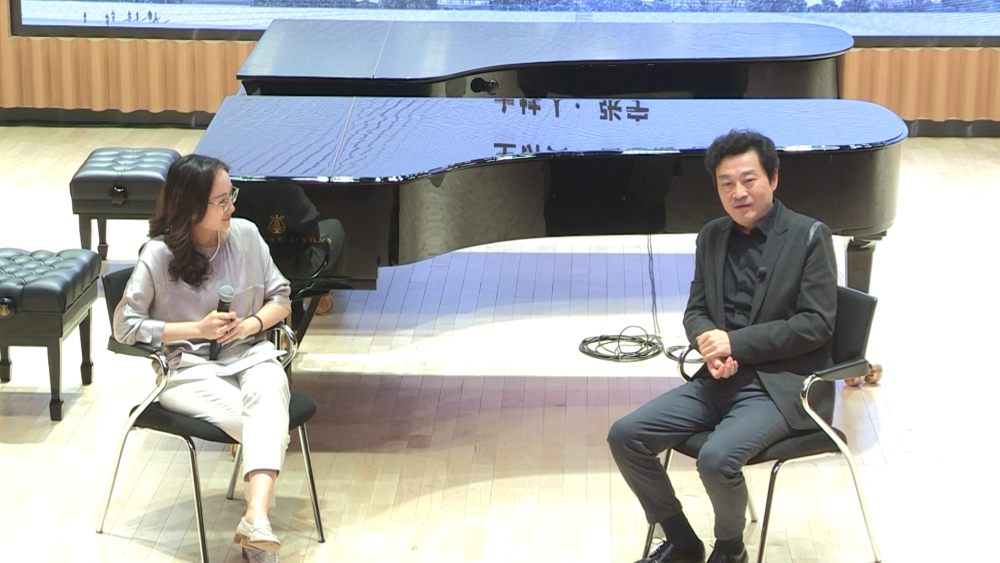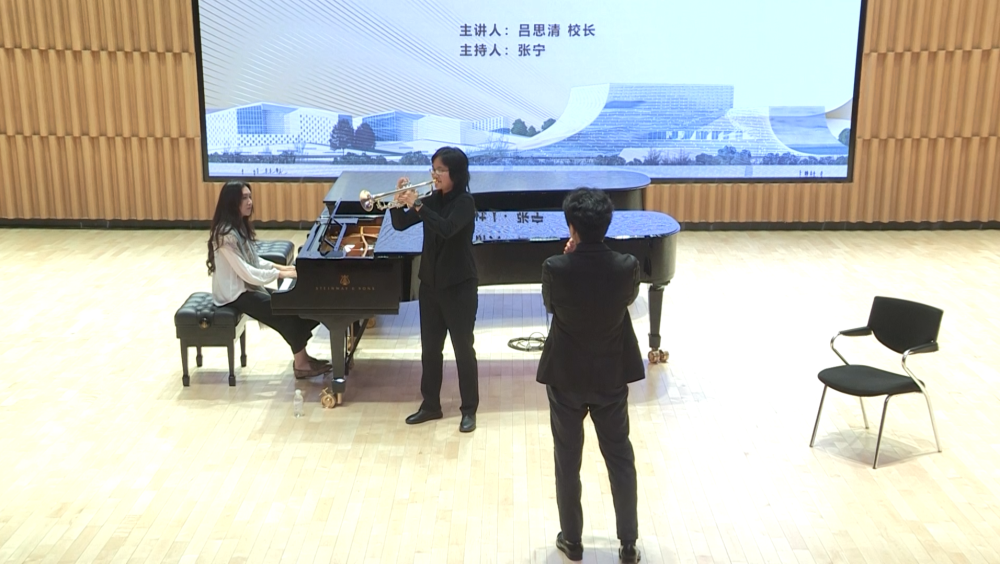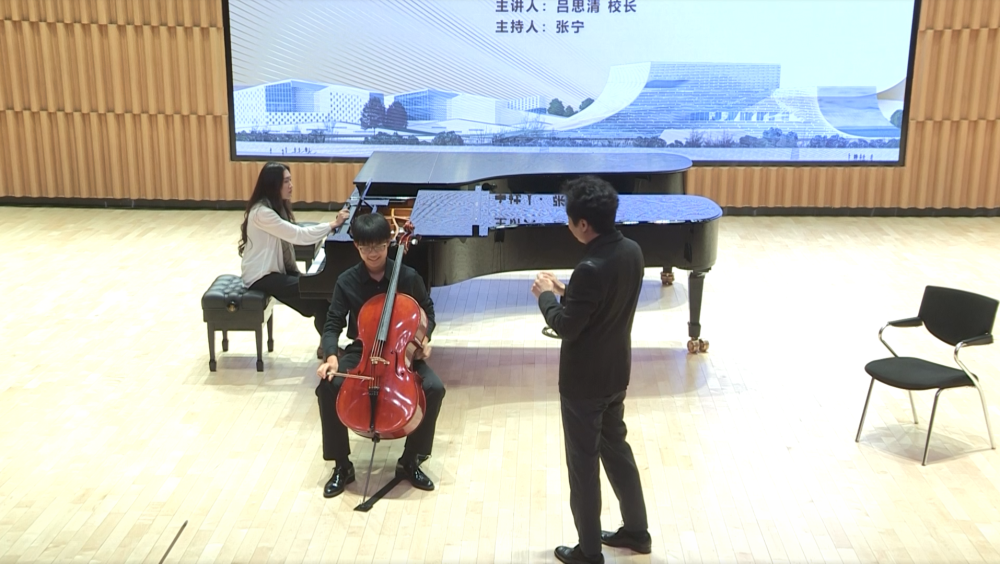On May 10th, The Yehudi Menuhin School Qingdao commenced the third installment of its Professional Etiquette Lecture series. President Lu Siqing personally led the lecture titled 'Beyond the Melody: Stage Presence for Musicians.' Departing from the traditional lecture format, this session took the form of a dialogue. Teacher Zhang Ning invited President Lu Siqing to share his experiences and provide on-the-spot guidance regarding personal image, attire, and stage demeanor related to stage performance. This helped students avoid misconceptions about stage performance and achieve the highest artistic standards.
Regarding how to present one's best artistic standards on stage, President Lu Siqing believes that optimal performance involves two aspects. Firstly, it's about enabling the audience to perceive the music's emotional impact rather than the performer's technique. Secondly, it's about synchronizing the audience's heartbeat with the rhythm of the music, allowing imagination to freely soar within the realm of music. From the performer's perspective, every detail serves the purpose of achieving a compelling stage presence. Thoroughly reading sheet music is essential; paying meticulous attention to expressive markings, dynamics, and variations ensures an authentic expression of the composer's score. Only then can one embark on a process of creative interpretation, integrating an understanding of the piece, the instrument, and playing techniques, as well as personal cultural insights and life experiences, resulting in an elevated interpretation during stage performances.

Regarding the creation of a performer's stage image, President Lu Siqing discussed the areas of stage presence, attire, etiquette, and demeanor. Firstly, performing music aims to convey the beauty of music and soothe the soul. Untidy, dispirited, or sloppily dressed appearances clearly fail to evoke a positive impact on the audience. Secondly, as a performer, clothing need not be flashy; appropriateness is key. Attention to details and colour coordination is crucial, as clothing aesthetics can directly convey the performer's aesthetic sensibility towards music. Attire varies individually, but a leaning towards a classical style is recommended, without compromising the performance. Furthermore, stage etiquette must be impeccable. Upon taking the stage, the first gesture should be a bow to the audience. Lastly, cultivating stage demeanor requires consistent effort. Regular mirror practice is essential; understanding one's facial expressions, body language, and deliberately practicing one's state of being aids in presenting confidence and affability.

When guiding trumpet major student Liu Yinglu, President Lu Siqing commended her high level of professionalism and encouraged her to display even greater confidence, composure, and positivity during stage performances. The body should seamlessly merge with the music, effectively dissipating any restraint or awkwardness during performance, ultimately achieving a state of harmony between the performer and the instrument.

President Lu Siqing appreciated student Kuang Yihao's overall engagement and performance on stage, noting that music has a trajectory. It's essential to aptly arrange the music and vividly express its climax, such as preparing adequately before changing positions to ensure a continuous and coherent sound.
President Lu Siqing highlighted that when it comes to stage performance and etiquette, it's not only the teacher's role to guide students but also crucial for each individual to reflect in front of a mirror, finding their most suitable state of being.
